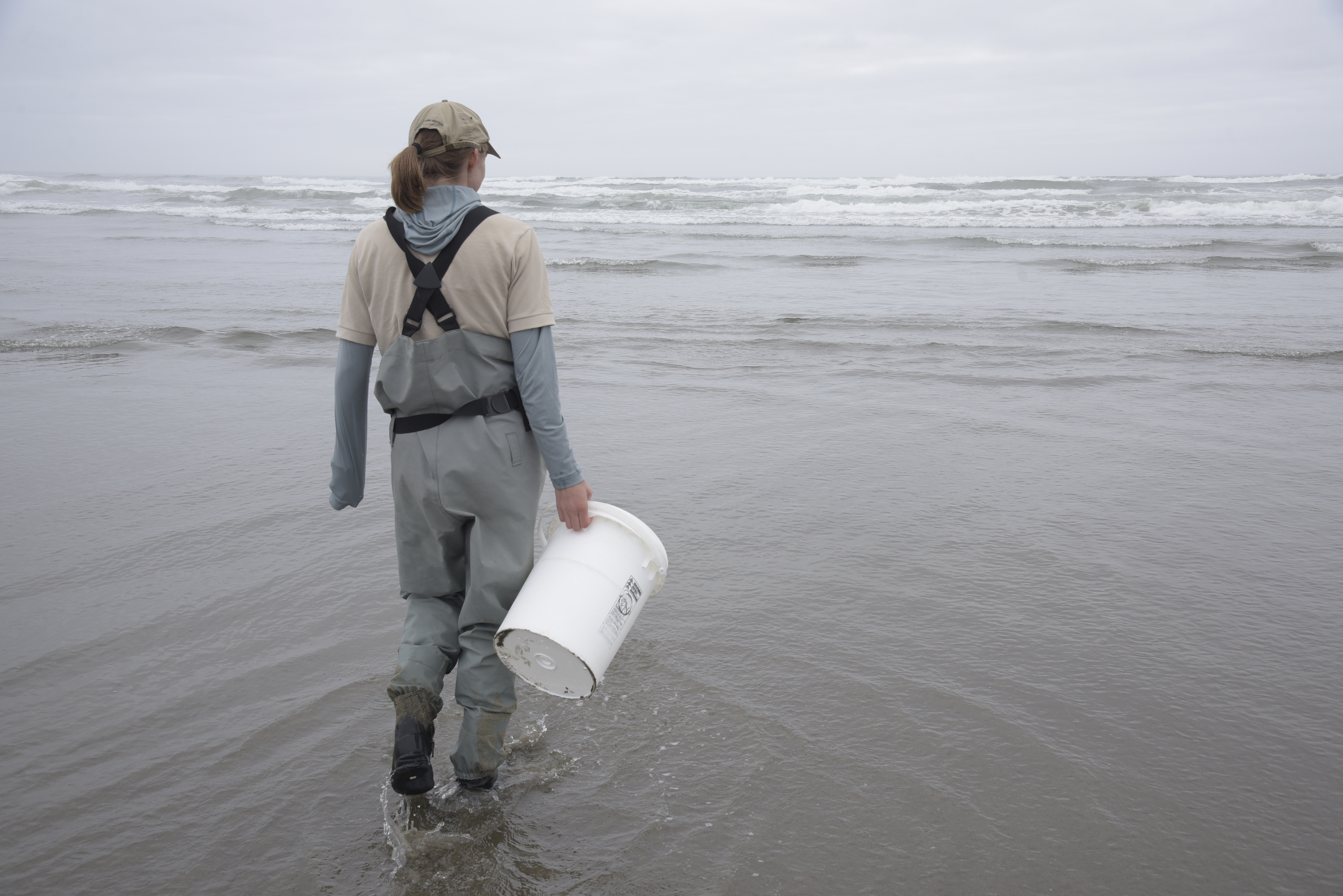Behind the News: ‘We have had a lot of sick patients’
Published 12:30 am Saturday, August 21, 2021

- Chris Strear is chief medical officer at Columbia Memorial Hospital in Astoria.
Clatsop County is in the top half of Oregon counties in vaccinating residents against the coronavirus.
Trending
But the metric has not spared the county from a surge of new virus cases and hospitalizations linked to the delta variant. August is on pace to become the worst month of the pandemic so far.
Most of the people getting sick are unvaccinated.
“It’s hard not to get disheartened by the fact that the staff are seeing what they’re seeing and the situation is entirely preventable,” said Chris Strear, the chief medical officer at Columbia Memorial Hospital in Astoria. “If we had the vaccination numbers that we had hoped for, and that we should have, this wouldn’t be happening right now.
Trending
“And it’s really hard to work as hard as they are taking care of a situation that didn’t have to happen.”
Columbia Memorial, among the county’s largest employers, has had some of the same difficulties as other businesses in convincing workers to get vaccinated. More than a quarter of hospital staff — 27% — are unvaccinated.
“If you’re not vaccinated already, you should get vaccinated,” said Strear, an emergency room doctor who joined Columbia Memorial in June after nearly two decades at Legacy Health in Portland.
In an interview via Microsoft Teams, Strear discussed how hospital staff are coping with the challenge of more virus patients, his guidance for the unvaccinated and vaccinated and whether political polarization during the pandemic will leave the country more vulnerable to future public health threats.
Q: Columbia Memorial was fortunate not to see very many hospitalizations from COVID-19 for much of the pandemic. Now that’s changing. The surge in new virus cases driven by the delta variant came after most government restrictions were lifted and many people felt like life was returning to normal. How are your doctors, nurses and other staff coping with the challenge?
A: Everyone’s doing OK. We’re working as hard as we ever have, but people are really pulling together here.
There’s a lot of work to do. People are really stepping up. They’re working extra shifts. They’re filling in in areas that maybe they wouldn’t normally be working. It’s really something to see everybody rise to the challenge.
And it’s a pretty big challenge, because we have had a lot of sick patients. We’ve been seeing both volumes and acuity that really, in some cases, is unprecedented here.
Q: Many of the people who are being hospitalized for the virus are unvaccinated. What are you hearing from them when they come in and they are sick?
A: Most of the patients who are being hospitalized for COVID are unvaccinated.
In general, the few breakthrough cases — where the patient was vaccinated but still hospitalized — even in that case the severity of illness tends to be much less.
Honestly, a lot of the patients that are coming in — as an ER physician, when I see them — it’s not really something they’re in a position to talk about. A lot of times, they’re so ill, they’re not really in a position to talk about anything.
But those that do frequently express regret that they didn’t get the vaccine because, gosh, when we see them, a lot of the times they are in just horrible shape.
Q: The pace of vaccinations has slowed in the county over the summer. A significant number of people appear to have tuned out messages from political and public health leaders. As a doctor, what is your advice for people who are unvaccinated?
A: I don’t know if they have tuned it out. I think the people that aren’t getting vaccinated either have pretty strong convictions — and it’s not that they aren’t listening to the message, it’s just that the message isn’t persuading them or they don’t believe the message.
I’m hopeful that when the FDA (Food and Drug Administration) gives approval of the vaccinations, then we will see another significant uptick in people getting vaccinated.
The vaccines have been around for a year now — hundreds of millions of people have been vaccinated. The data is pretty amazing at how good a job it does of protecting people from serious illness. And the data is pretty amazing at how low the significant side effects, or complications, are from the vaccine.
I can tell you again, as an ER physician, I’m in a position to see people who have had problems with the vaccine, and I’m in a position to see people who’ve had problems from COVID, and I’m not sure that I’ve ever taken care of anyone who had a serious, life-threatening reaction to the vaccine. That has happened, but really not more so than vaccines in general.
But, boy, I’ve spent the last year and a half of my career taking care of some of the sickest patients I have ever seen in my life because of COVID. I personally — I don’t understand the choice of declining the vaccine.
All the hardships that people are going through — both as caregivers and as patients who are sick from COVID, and as patients who are sick with other things, but can’t get the care that they need, can’t get the resources that they need, because the hospitals all across the state and all across the country are so overwhelmed taking care of COVID — the choice to not get vaccinated if you can just doesn’t make sense to me.
And I guess that’s what I tell people.
Q: What guidance do you have for people who have been vaccinated and are worried about still getting the virus?
A: Well, especially with the delta variant, we’re learning that that absolutely happens. It happens probably much more commonly than we might think.
I think the most important thing for people who are vaccinated to understand with breakthrough is that the majority of vaccinated patients with breakthrough are asymptomatic or minimally symptomatic. And the protection of the vaccinated against serious illness and hospitalization from COVID — it remains phenomenal, absolutely.
I think CDC (Centers for Disease Control and Prevention) and OHA (Oregon Health Authority) have guidance for what to do if you’re vaccinated and exposed, what to do if you’re vaccinated and symptomatic. It’s important to follow those guidelines.
It’s important especially with moderate and severe illness, as rare as that is for the vaccinated, to still come and be evaluated. And especially following the PPE (personal protective equipment) recommendations, the social distancing and the quarantine recommendations, because even if you are vaccinated and asymptomatic, you can still be infectious.
And, unfortunately, there’s still a significant number of people that aren’t vaccinated that are particularly at risk.
Q: The pandemic has fueled a political backlash — by about a third of the country — against many of our institutions. There appears to be a broader assault on expertise. Do you worry this could leave us more vulnerable to future public health threats?
A: That’s a great question. I really don’t know, mostly because I’m still — even after all this time — I’m still so surprised and disappointed.
I don’t understand how wearing a hospital mask for preventing the spread of a pandemic that’s really crippled our planet — I don’t think that’s an exaggeration to say. I don’t understand how wearing something that goes from your nose to your chin to save lives — I don’t understand how that can be politicized.
I don’t understand how we got to this point, and because I still am so mystified and disappointed with it, maybe it’s a little denial on my part to say that I’m not sure if there’s going to be similar fallout or polarization with a future public health concern.
Unfortunately, I think when winter comes and flu season kicks up, we’ll have a chance to see.
I would like to think that when we look back on this, the overwhelming consensus will be masks were the right thing, social distancing was the right thing, self-quarantining was the right thing and immunizations were the right thing, and it won’t be an issue in the future.









